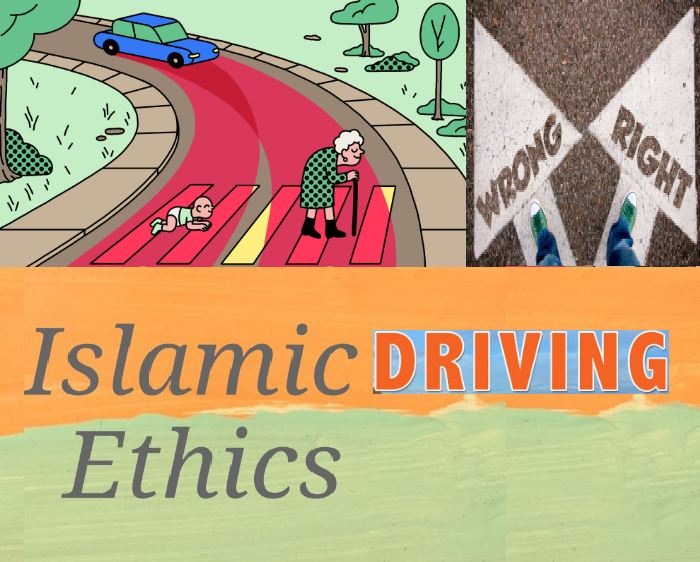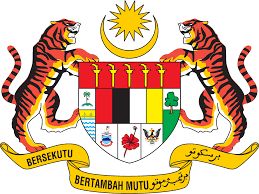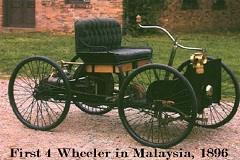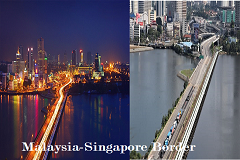Islamic Driving Ethics (IDEs): Driving and Traffic Laws in the Light of Islamic Teachings
- On Oct, 19, 2022
- Admin
In the past era people used to ride old means of transportation such as camels, horses, mules and donkeys, then God Almighty bestowed people with modern means such as cars and other vehicles. The advancement in transportation technology not only created ease but also an urgency to take care of road affairs, and legalize the administrative systems that are concerned with the safety of riders and pedestrians on roads. Governments develops the network of roads and arrange their maintenance, enacts modern traffic and driving regulations, and codifies repressive penalties for those who neglect the safety of people's lives and property.
These road safety regulations protecting people’s life and money are not in violation of the Islamic law, but are in agreement with it because they fulfill one of the goals of the advent of Islam, which is to preserve the right to life and the right to property.

A person should avoid sitting on the road designated for the passage of cars, or walking on that road at a time in which he is not permitted to pass; for if he did, he would endanger himself and the driver of the vehicle; God Almighty said: “And do not throw yourself into destruction” [Al-Baqarah: 195].
The driver must also not do anything on that road that may harm pedestrians, passengers, and vehicles such as razing, or throwing stones on the roads, garbage, or debris, or anything else that disrupts or obstructs those who pass on that road.
How many families, their relatives, friends and neighbors have been killed in road accidents? How many accidents cost the driver and his family for compensations of the dead, and the costs of treating the injured, what they earned throughout their lives in a shape of property or cash? How many accidents have left a number of disabled, widows, orphans, debtors and miserable? These are indeed few significant questions drivers should ask themselves.
If we come to look at the causes of the occurrence of these painful accidents, we will find that main reasons are failure of vehicle drivers to comply with traffic laws, lack of driving etiquettes, and the presence of some obstacles on roads. Traffic accidents pose great danger to the people on the roads. To mitigate and avoid accidents, we present some driving etiquettes in the light of Islamic teachings, to be taken care of by drivers during their on-road experience. To better describe these driving etiquettes, Ch. Mahmood Anwar (the founder of Drive in Malaysia) devised the term “Islamic Driving Ethics (IDEs).
Islamic Driving Ethics
1. Only those who have sufficient knowledge of driving should drive a car. As for those who do not have it, they must complete the learnings stages in a place far from the movement of people. Because people’s lives and property are not permissible to be harmed by those who learn to drive. As Prophet Muhammad Peace Be Upon Him (PBUH) said, "No Harm to Oneself and Not Harmful to Others" (La Darar Wa La Dirar) (Ibn Majah: 2431). Islam has prohibited harm in all its forms and shapes, to the extent that it forbids harming others from their birth until their death, and even after their death.
2. The driver should take care of his car and regularly check the car before driving. He should look underneath and around the car as there may be a child or an animal and driven may run over them without even realizing it. God almighty said, “and be not of those who are neglectful” (Al A’raf: 205). Also said, “Then, on that Day, you will be called to account for all the bounties you enjoyed” (At-Takathur: 8). The correct view of this verse is that the bliss mentioned in the verse is general and includes everything that a person enjoys. It includes all kinds of blessings, such as food, drink, clothing, housing, cars, health and wellness, senses, and so on.
3. The driver should be committed to fasten the seat belt while driving. We are all certain that safety and protection are in the hands of God Almighty. “God is the best preserver and He is the most merciful of the merciful.” However, the Islam commands to makes safety arrangements first and then leave the rest to God. It has been proven by definitive experience that the seat belt mitigates the severity of the calamity during an accident and protects the driver from the horrific collision. Seat belt is compulsory as asked by the government authorities and to obey government and its authorities is compulsory as God almighty said, “O you who have believed, obey Allah and obey the Messenger and those in authority among you” (An-Nisa: 59). The Messenger of Allah (ﷺ) said, it is obligatory for you to listen to the ruler and obey him in adversity and prosperity, in pleasure and displeasure, and even when another person is given (rather undue) preference over you (Sahih Muslim: 1836).
4. Realizing the greatness of the human soul and the importance of its wealth. This calls the driver to be very careful while driving, as God almighty mentioned in His book, “whoever kills a soul unless for a soul or for corruption [done] in the land – it is as if he had slain mankind entirely. And whoever saves one – it is as if he had saved mankind entirely.” (Al Maidah: 32, QS 5: 32). In addition, Prophet Muhammad (PBUH) said, “All things of a Muslim are inviolable for his brother-in-faith: his blood, his property and his honor" (Sahih Muslim: 2564).
5. Following the speed to the extent permitted, and the failure to comply with allowed speed limit causes accidents and calamities. Exceeding the speed limit during driving, leads to death and total loss, and it is one of the quickest ways to death, and the closest way to bear the massive financial losses, and it may result in the price of a wheelchair and paralysis for some drivers. Allah almighty said, “And do not kill yourselves [or one another]. Indeed, Allah is to you ever Merciful. (An- Nisa: 29 (QS 4: 29). Prophet Muhammad (PBUH) said, “Deliberateness is from Allah, and haste is from the Ash-shaitan." (Jami` at-Tirmidhi: 118). Further, the Messenger of Allah [SAW] said, “the believer is the one from whom the people’s lives and wealth are safe."(Sunan an-Nasa'i: 4995).
6. Following traffic regulations and not violating them, like the signal system, even if the road is empty, a little patience will lead you to safety and a hasty moment may hasten death and injury. Human, by his nature, is impatient, and he would like to realize everything quickly. God Almighty outlined this matter that is settled within the souls of humankind, saying, “And man is ever hasty.” (Al-Isra: 11). Moreover, God said, “Man was created of haste.” (Al-Anbiya: 37). Since this hastiness brings its owner troubles and causes him problems, Islam calls for educating the soul to be slow in worldly matters, and by slowness, we mean here: not to be in a hurry in seeking things and to be patient in acquiring them. The systems that manage the traffic of roads and vehicles are a great blessing from God’s grace, who inspired the humankind to invent them, so that by following traffic rules and regulations, human could save his life and others.
7. Refrain from being preoccupied with something that distracts the driver’s attention, such as the frequent use of the mobile phone, playing music loudly etc. The problem of distraction while driving is not a latter-day problem or phenomenon associated with the widespread use of mobile phones. Rather, distraction and deviation while driving a car has always been a major cause of serious traffic accidents, simply because distraction and preoccupation with secondary tasks while driving make the reaction timings lower which causes the accidents.
For example, if you are driving at 60 km/h on a wide, qualified road, all you need is to be busy with anything other than driving for four seconds to have an accident. Such as an animal appearing in front of you or another driver making a sudden turn, or not noticing the diversion sign due to works or traffic lights, then the problem is not what distracts you from driving, but rather the distraction itself, no matter whatever is the reason. Distractions that can have an impact on safe driving are usually divided into three main categories:
a) Visual distractions
b) Manual distractions
c) Cognitive distraction (Romeo Vitelli Ph.D., "Distracted Driving and Cellphones: What Are the Risks?)
According to a 2017 study by British psychologist and professor Dr. Simon Moore, songs with a fast beat can cause drivers to speed up to match the beat of the song. He identified those songs with beats of more than 100 beats per minute lead drivers to drive faster. Another study has showed that when drivers listen to music at more than 95 decibels, their reaction times slow by 20%.
So, if you speed up to match the beat of your favorite songs, or blast them loud, you can increase your chances of being involved in a distracted driving accident. You are more likely to speed up and weave through traffic.
8. One should not drive a car when drowsy or stayed up for a long time, and even worse when taking an intoxicating substance. Few important advices in this situation are:
a) You should not drive unless you are completely fit, and have taken enough rest. If you want to travel long distances, you have to organize the time so that you take an appropriate rest before traveling, usually it is preferable to sleep from seven to nine hours before traveling, and this rest is considered as a return charging energy and preparing the body for travel.
b) Not driving for a long time.
c) Take a break when feeling drowsy and lethargic.
d) Put a bottle of water or juice next to you.
e) Car temperature (some may not realize that the car’s heat may encourage the driver to want to sleep, sometimes it is preferable to turn off the air conditioning even if you feel hot, or open and close the car windows, according to the weather).
f) Plan your route and find out where the rest areas are located.
g) Make sure you take the medications, if any, along with you while traveling.
9. Choosing the right place to park the car, as the road belongs to everyone. As God almighty said, “Do not transgress. Indeed. Allah does not like transgressors.” [Al Baqarah 190 (QS 2: 190)]. The Prophet Muhammad (PBUH) said, "No one of you becomes a true believer until he likes for his brother what he likes for himself". (Riyad as-Salihin: 183) Another important narration of this hadith may be found in Musnad Ahmad. It states, "Swear to God who sustains my life, a servant (human) does not truly believe (in Islam) until he loves for his brother what he loves for himself of goodness." This hadith stipulates one of the most important rules of behavior in Islam. It is a clear sign as to how Muslims are supposed to behave toward other humankind. It states a general principle that may be applied in all departments of life. The importance of this principle is so great that some consider this hadith one-fourth or one-third of Islam. In a hadith mentioned in Sahih Muslim, the Messenger (PBUH) said, "Whoever loves to be saved from the Fire and entered into Paradise should die with belief in Allah and the Last Day and should treat the people in the way that he wishes to be treated by them." (Riyad as-Salihin: 1566).
About the Author
Dr. Hafiz Abbas holds a PhD in Usuluddin from Universiti Sultan Azlan Shah (USAS), Malaysia. He is well versed with Islamic theology, Seerat-un-Nabi (SAW), and principles of Hadith. In addition, he is a teacher of Arabic.
Edited by: Ch. Mahmood Anwar
Do you think you should follow Islamic Driving Ethics (IDEs) to safeguard yourself from accidents as well as protect other road users from harm? Do comment your stance on it if you liked our post!




















